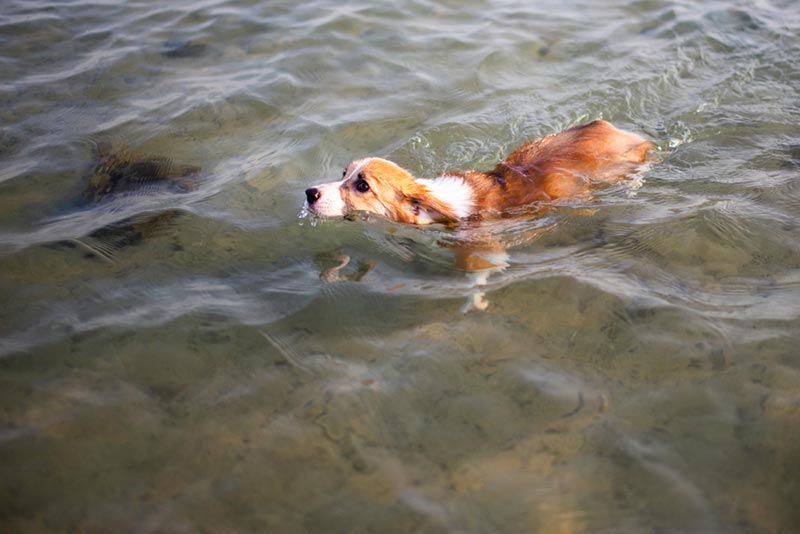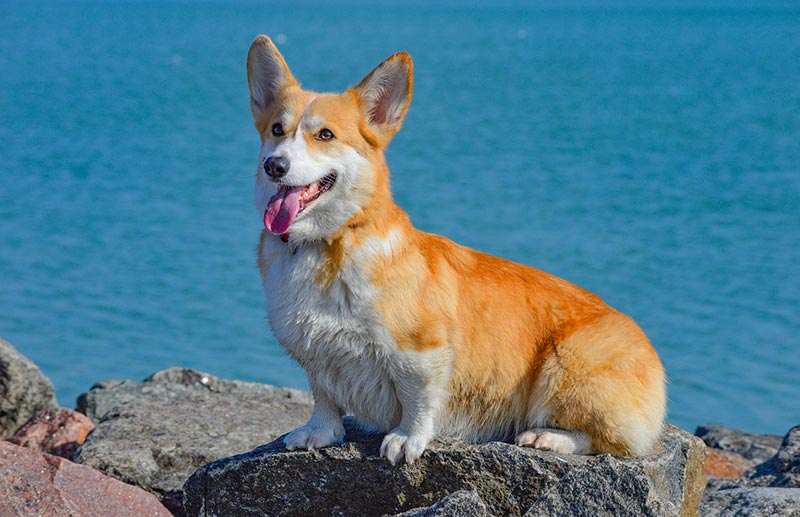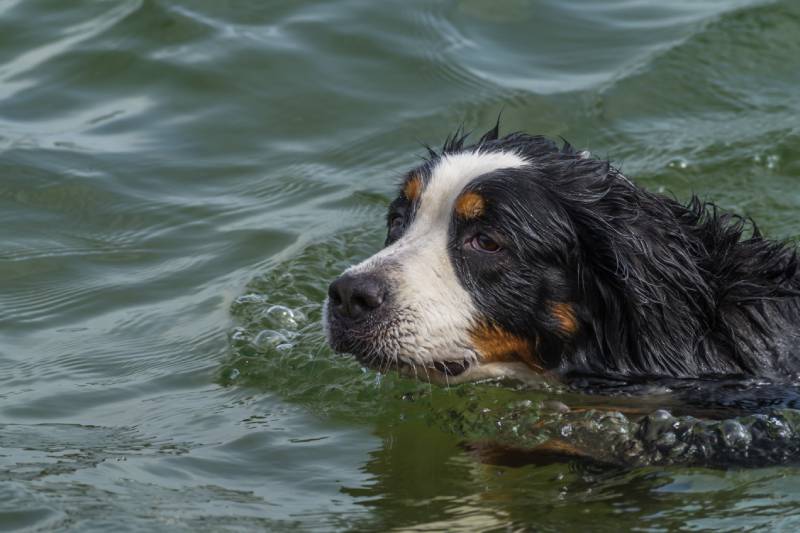Why Do Corgis Float? The Surprising Answer!

Updated on

When most dogs swim, their heads are above the water, and their paws work diligently in a classic doggy paddle style with their body well underwater. But with Corgis, they plunge into the water, and their barrel-like bodies seem to bob and float like a cork.
Despite this image, there is one simple answer to why Corgis float: they don’t actually float any more than other dogs do. There’s a myth floating around the internet( no pun intended) for which we couldn’t find any scientific proof.
The common belief is that the Corgi is made differently from other dogs. The rumor states that their bottoms are made up of more air (almost 80%, to be exact), and that the Corgis’ butts are less heavily muscled than other breeds. This is said to be because the muscle itself (the gluteus maximus) is made of more fat and air than muscle fibers.
This supposed air causes the Corgi to float up to the surface. Although this is a cute explanation for one particular video of a floating Corgi, there’s no scientific evidence to prove this at all, and it seems extremely unlikely to be true.
If a Corgi’s muscles were mostly fat and air, they wouldn’t be able to walk. The Corgi may appear to float more due to air trapped in its thick double coat, paired with its relatively short back legs.
There may be a small kernel of truth to this statement, however.
Corgis are unfortunately prone to obesity, as their short legs and barrel-like bodies mean they gain and keep fat easier and have slower metabolisms. Because fat floats more than muscle and bone do, there may be some buoyancy afforded by their fluffy figures.
Are Corgis Good Swimmers?
Corgis aren’t naturally good swimmers despite having a waterproof double coat. This is due to how they’re made; all corgis have an inherited form of dwarfism known as achondroplasia, which gives the breed exceptionally short legs.
These short legs, coupled with the Corgi’s stocky body and chest, can cause them to tire very easily in the water, so it’s recommended to allow your Corgi to swim in shallow water only and supervise them at all times.

Do Corgis Like Water?
Corgis have a double coat ideally suited to water. However, this doesn’t mean that they will all want to swim. If a Corgi is exposed to water as a puppy and has positive experiences with it, it’ll most likely enjoy swimming. Never force your Corgi to swim or throw them into the water.
Why Are Corgis So Short?
Corgis are bred to be short; initially, they were bred to be cattle-herding dogs known as heelers. These dogs were selectively bred to have short legs, as shorter legs gave them better agility and an advantage over the cattle. As a result, the Corgis could reliably avoid the hoofs of the cattle as they herded them, nipping at their heels to control their movements.
Final Thoughts
Corgis are known for being fluffy, charismatic, and interestingly shaped, but they don’t float any more than other breeds. That doesn’t mean they can’t float, but their short legs may hinder their ability to swim well. Therefore, always supervise your Corgi when swimming and try to keep them in shallow water.
See also:
- How Many Puppies Do Corgis Have? Litter Sizes & Pregnancy Info
- When to Spay or Neuter a Corgi? Vet-Approved Care & Health Facts
Featured Image Credit: Atit Siriprarob, Shutterstock











